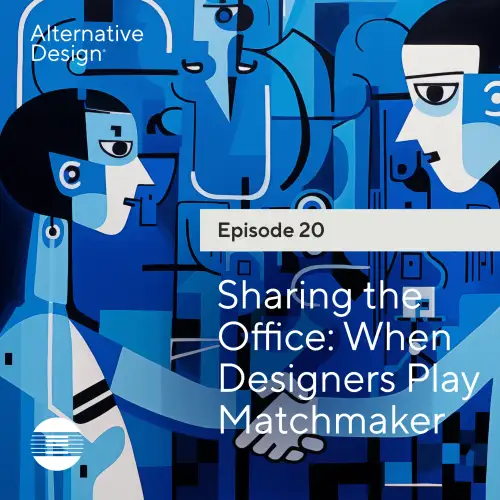In the ever-evolving world of business, one of the areas undergoing significant transformation is the office environment. More than just a place for work, the future office space is being reimagined as a hub for community engagement and cultural activities.
In the Alternative Design episode, “Sharing the Office When Designers Play Matchmaker” Stanley Sun from Mason Studio offers an innovative perspective on this transformative trend. Everything the studio does is grounded in an optimistic view of humanity and their belief in the potency of design as a tool for actionable change.
A NEW APPROACH
Stanley and his team are challenging the conventional workspace and introducing a new approach that places only a 20% emphasis on traditional office spaces. The rest of the work environment is dedicated to creating a community hub, a place for workshops, a pay-what-you-want café, a childcare space, and a library. Their innovative concept was put into practice during the Toronto Design Festival when their office was transformed into a cultural hub that reflected their company values. Stanley’s vision extends beyond redefining physical spaces and aims to foster community building. The spaces are all open to the public, which is a novel concept as many companies are choosing to downsize their office spaces due to hybrid work. The team sees potential for businesses to discover new revenue streams that simultaneously serve communities by creating meaningful connections.
CO-OWNED OFFICES
Stanley’s co-owned approach to space can provide a valuable research opportunity for companies to understand the needs and responses of the community better. The future of office spaces is undoubtedly exciting. However, it is essential for businesses to align their evolving office environments with their values. The transformation of Mason Studio's office is a perfect example of this alignment.
BUILDING CONNECTIONS
Designers should be on the lookout for opportunities to integrate shared spaces into the office. These integrations may scale into bigger and more unusual partnerships in the future of the office. We may see daycare centers or hotel spaces needing to be meshed together in a recently downsized corporate office with a prime location. Mixed use spaces continue to be on the rise in commercial real estate, and could continue to be bolstered by the convenience of centrally locating services and experiences, especially when the average commute time to the office is 50 minutes. The future of office spaces is not just about providing a place for employees to work. It is about redefining workspaces to create meaningful connections, foster community building, and discover new revenue streams. With innovative thinkers like Stanley Sun leading the way, we can expect the future of office spaces to be vibrant, inclusive, and profitable.


